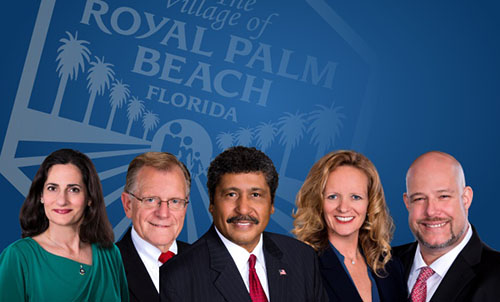In compliance with new state regulations regarding home occupations, the Royal Palm Beach Village Council gave preliminary approval Thursday, Jan. 20 to several amendments to the village code to assure that local regulations conform with state statutes.
Village Attorney Keith Davis said the ordinance brings the village into conformance with one of the most significant preemption statutes of the 2021 legislative session, having to do with how local governments can regulate home occupations, defined as business activity that occurs as a secondary activity at a residence in a residentially zoned area.
“It has to do with [when] you live in your house and you work from your home, or maybe you have a home office,” Davis said.
One of the biggest changes in terms of preemption, he said, is that the new law requires that home offices be regulated no differently than the same type of business in a commercial zoning district.
“Our old code said that you cannot have any employees in a home occupation,” Davis said. “The law now says the business has to be run by someone who lives in the house. You are now allowed to have up to two employees who do not live in the house who can come in every day to work.”
The village is still allowed to levy a business tax receipt for a home occupation, and parking regulations still apply.
“We are still allowed to regulate traffic and parking conditions, so whatever our parking codes are for any particular residential zone, those still apply, so you are still not allowed to have commercial vehicles parked overnight,” Davis said. “If you have a home occupation, you’re not allowed to generate more traffic or create more parking issues than [any other] residence in the same zoning district.”
The village is also still allowed to regulate aesthetics. “The house still needs to be a house; it can’t look like a store front,” Davis said.
The new law does allow some permissible signs that can be placed on residential businesses.
“A home occupation can enjoy the same regulations,” he said. “They can’t have more, bigger or different signs, but they are allowed to follow our sign code for residential properties, the same as residential properties without a home occupation.”
The village is still allowed to regulate nuisance-type activities, such as noise, odor, vibration or the use of hazardous materials.
“We can still have annual inspections to make sure it complies with zoning, but we can’t have our own home occupation permit, and we’re not allowed to prohibit employees any longer,” Davis said. “You can’t place more restrictions on a home business than on a commercially zoned property.”
He said the proposed ordinance would bring the village into conformance with the current state law.
Councilman Jeff Hmara noted that the new statute is less preemptory than the original bill, which stated that local governments cannot regulate home businesses differently than those in commercial areas, but the Florida League of Cities was able to inject some local control.
“You can see now that we still have some latitude,” Hmara said. “We can take action to prevent annoyances and things of that nature in a residential area. Otherwise, it started out that you can’t do anything different as far as limiting functions of businesses in commercial areas than you could in residential.”
Councilwoman Jan Rodusky made a motion to approve the first reading of the code amendments, which carried 5-0.








